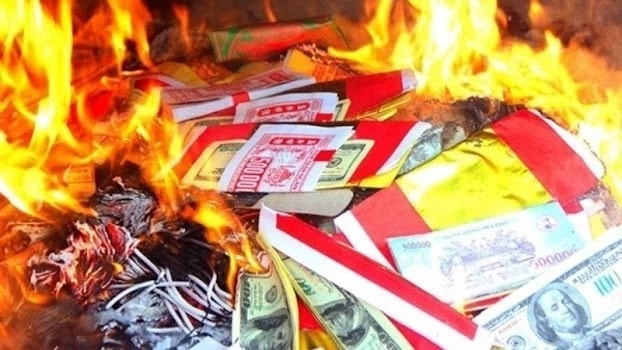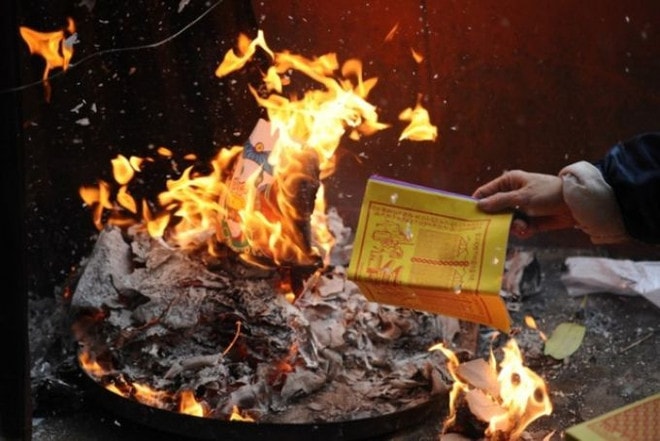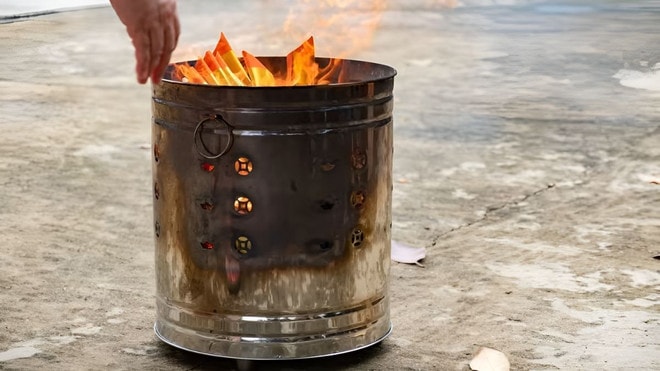To burn votive paper properly and achieve spiritual effects, the practitioner needs to follow certain principles and procedures.

Burning votive paper is a traditional ritual in Vietnamese religious culture, especially on holidays, Tet, ancestor worship or important occasions of the year.
This is an act of showing respect, remembering ancestors and praying for peace, fortune and luck.
However, to burn votive paper properly and achieve spiritual effects, the practitioner needs to follow certain principles and procedures.
The time of burning votive paper is very important in worship rituals. Traditionally, Vietnamese people often choose the full moon day, the first day of the month or holidays and Tet to burn votive paper.
This is not only because it is the time when ancestral spirits often visit, but also because of the belief that on these days, the spirits will easily receive offerings.
In some families, the time to burn votive paper is also chosen based on a good date and time according to the lunar calendar so that the homeowner can pray for luck and fortune.
The main items used for burning votive paper are votive papers, made from paper, shaped like objects in everyday life, including gold coins, houses, vehicles, clothes, decorative items...
However, when choosing votive paper, you need to pay attention to criteria such as beautiful appearance, good quality, not torn or too old.

The space for burning votive papers must be clean, airy and solemn. Before burning votive papers, the homeowner should clean the altar, change the offering water and incense.
The offering tray needs to be fully prepared, including incense, lamps, incense, betel and areca nuts, fruits, wine, candy, and votive paper.
It is not advisable to burn votive paper in the house, as this is a taboo in feng shui. Instead, families often burn votive paper in the yard or in cool places to allow air circulation.
Once the offering tray and items have been fully prepared, the homeowner should light incense and invite the ancestors and gods to witness and enjoy the ceremony. After the ancestor worship ceremony is completed, the homeowner begins to burn the votive paper.
During this process, attention should be paid to maintaining a dignified atmosphere, avoiding making noise or acting disrespectfully.

Fire is used to burn votive paper, but it should not be burned too quickly or too strongly, as this can cause a feeling of disrespect.
To symbolize the offering, the homeowner can stand nearby and recite a prayer or say words of respect to the ancestors.
Although burning votive paper is a solemn ritual, during the process, homeowners need to pay attention to avoid the following taboos:
Do not burn votive paper too early or too late:This may affect the sacredness of the ceremony. The most suitable time is in the morning or afternoon.
Do not burn too much votive paper:Burning too much votive paper will not bring good luck to the family, but on the contrary, it will cause unnecessary waste.
TB (summary)